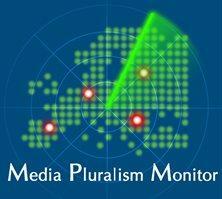
United Kingdom - Media Pluralism Monitor 2014
MPM 2014 divides the risks for media pluralism into three categories, encompassing respectively legal, economic and socio-political aspects. Despite the overall low risks for media pluralism in the UK, there are still some potential risks mainly due to media concentration, limited attention to issues of cultural and geographical pluralism, and influence over the financing of publicly supported media.
The highest risk is found in the economic sector, followed by some legal matters and least risks were found in the socio-political sector.
For the next UK Implementation of MPM some instruments and methods were suggested to be revised such as the measurement of sectorial and cross-sectorial ownership and revenues, limitations in audience measurement systems that are particularly related to regional and digital media, and some absolutism in the measurement categories.
The legal and regulatory system in the United Kingdom is well developed. It protects freedom of expression, affords information access, maintains specific media pluralism and competition policies and requires political impartiality in broadcasting.
The assessment of risks to media plurality involving the legal/regulatory frameworks in the United Kingdom did not reveal substantial issues. The majority of indicators were measured to exhibit low risk, however, some indicators revealed certain problematic issues. These do not appear to be immediate significant threats to media pluralism, but they should receive attention from policymakers.
Opposed to the overall low risk of the legal indicators examinded some significant economic risks are evident in the data. The highest economic risk to media plurality results from high ownership concentration and high audience and readership concentration. There is high concentration of ownership in television, newspapers, and Internet Service Provision (indicator 21) that presents both pluralism and consumer risks.
The study revealed few significant risks to media pluralism related to socio-economic factors in the UK. It provides relatively good service to audiences with special needs and the politicisation of media tends to be present only in the national press.
Tags: United Kingdom Media pluralismThe content of this article can be used according to the terms of Creative Commons: Attribution-NonCommercial 4.0 International (CC BY-NC 4.0) . To do so use the the wording "this article was originally published on the Resource Centre on Media Freedom in Europe" including a direct active link to the original article page.

